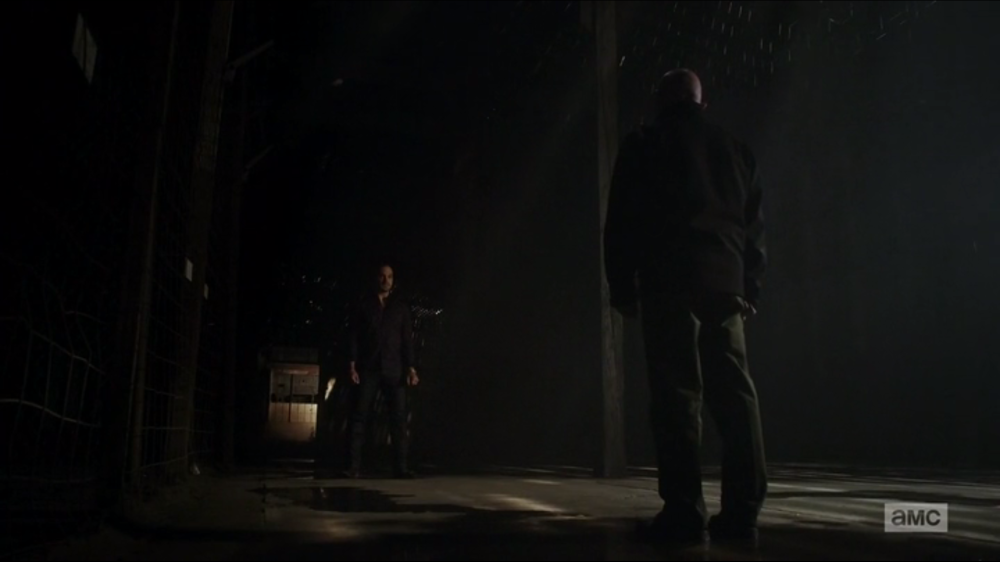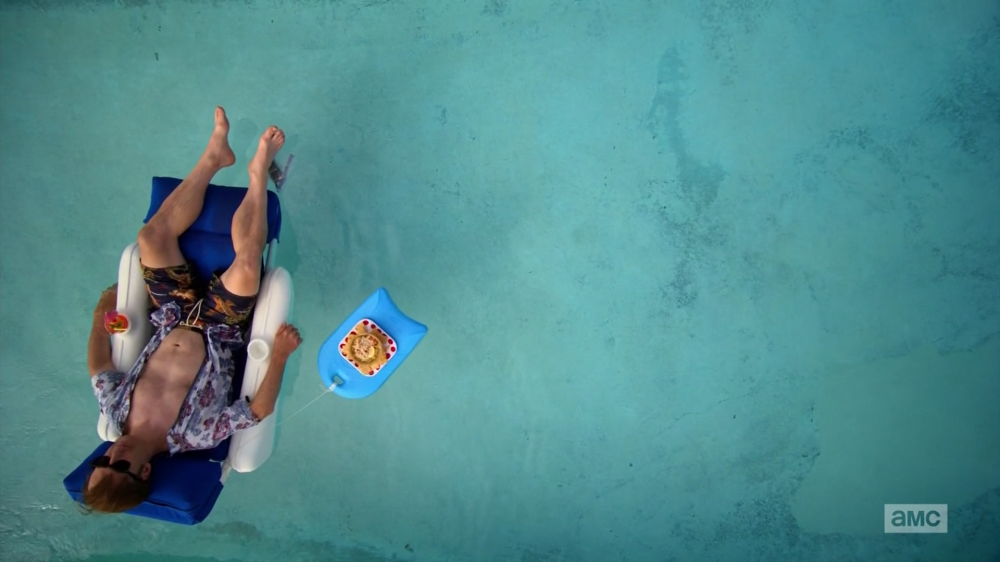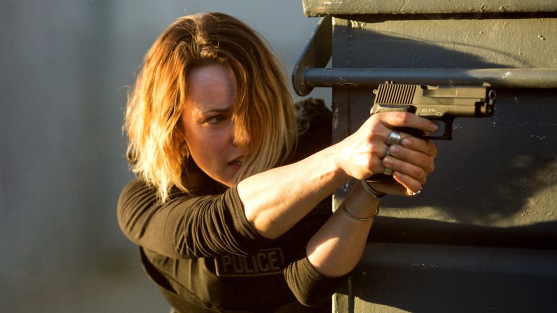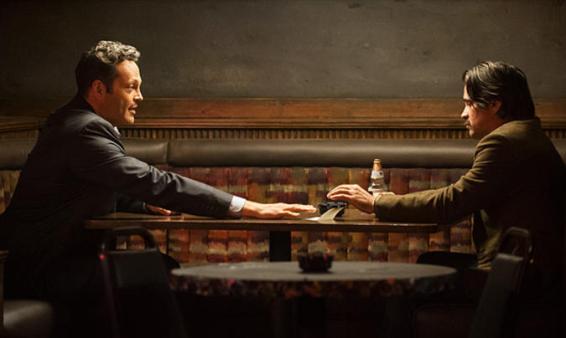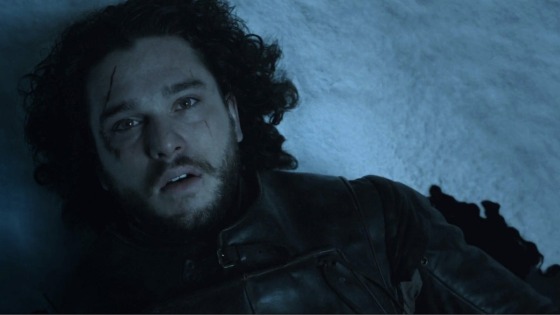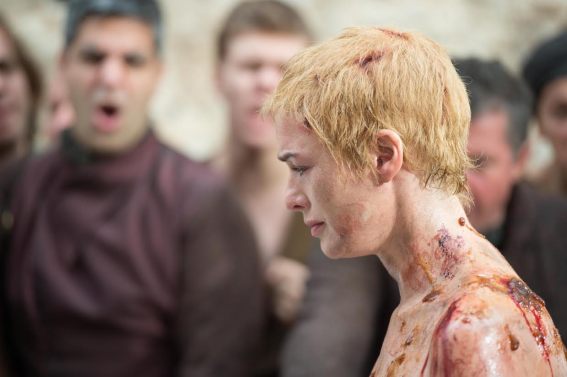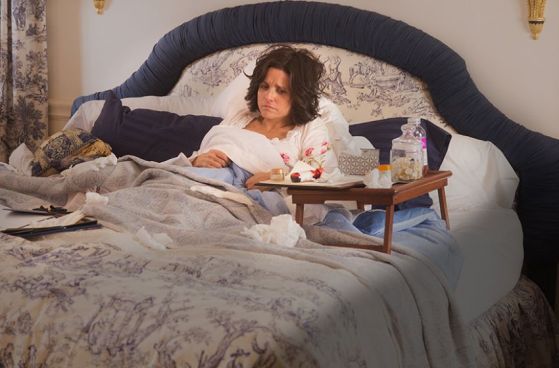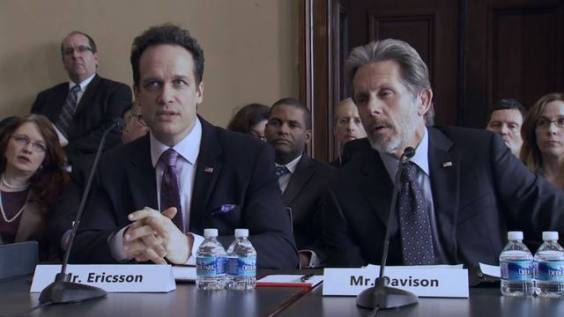
Better Call Saul Season 2 – Episode 4
This week’s episode elects to give Jimmy’s plotline a minor intermission, and instead focuses mainly on Mike and his ‘next level’ work with Nacho. This is a welcome insertion, as Mike hasn’t had much to do so far this season and has been in danger of drifting into irrelevancy. Mike’s marginalization isn’t helped by his ceaseless stoicism, which make it difficult to glean much character motivation through the grunts and shrugs that make up the bulk of his dialogue in minor scenes. This continuous level of obfuscation by the series’ writers can sometimes make it difficult to sympathize with a character who so far has been defined by his professionalism and little else.
This all changes with the episode’s cold open, as every aching motion of Mike’s late night return home helps to humanize him in a way no scene of dialogue has yet done. Throwing the envelope of money on the table conveys the feeling of a job thankfully over, while a welcome draught of beer may be the first time we’ve seen Mike actually express satisfaction. An icepack to the face and a slow recline onto the couch show how much of a toll this kind of work weighs on a man of Mike’s age, with the true extent of this toll finally grasped with the reveal of his battered face. The money on the table and the damage to Mike’s face imply that the ex-cop has finally taken the leap from ‘muscle’ to hitman, and that we are now witnessing the genesis of the ‘no half measures’ Mike we know from Breaking Bad. Of course, we later see Mike circumventing the need to eliminate his target (Tuco Salamanca of all people!) through a plan that, as Nacho puts it, nets him half as much cash for ten times the work. As much as Better Call Saul is about the transition from Jimmy McGill to Saul Goodman, the series is also about Mike’s evolution from an ex-cop trying to provide for his family to the ruthlessly pragmatic ‘fixer’ of Breaking Bad. Mike’s ‘half measure’ of having Tuco arrested rather than killed shows he’s not at that level yet, but in this episode both he and Jimmy veer the closest towards the people we know they’ll inevitably become.

Jimmy’s moment of decision this episode comes not while looking down the barrel of a rifle, but after learning the consequences of his subversion at Davis & Main. At the meeting with the partners to explain his recently aired commercial, Jimmy truly can’t understand why his employers are so furious, while they in turn are amazed that the problem wasn’t obvious to him in the first place. This reciprocal lack of understanding illustrates the radically different perspectives the two sides hold. For Jimmy, the utmost priority is Sandpiper, and specifically his clients, while the partners at Davis & Main view individual clients and cases as simply components that can help, or harm, the overall health of their firm. Jimmy sees the commercial as way to help more clients and build his case, making it to him an unmitigated success. The partners however, are now at risk of losing their firm’s reputation for the sake of a single case, through a decision they were not even able to take part in. Jimmy went behind his bosses’ backs, and as any seasoned viewer of The Wire knows, breaking the chain of command never goes over well with the bosses.
From Jimmy’s blinkered perspective however, the potential consequences for himself are nothing compared to HHM’s punishment of Kim. For not offering her prior knowledge of Jimmy’s commercial to Chuck and Howard, Kim is banished to dock review- a basement storage closet that mirrors Jimmy’s nail salon startup from last season. Chuck’s influence in this sends Jimmy to his brother’s house in rage, but despite Jimmy’s righteous anger, it’s Chuck that ends up looking superior after this exchange, as Jimmy can only ineffectively offer the same rationalizations he used with the partners at Davis & Main. This unsurprisingly promotes Chuck to largely repeat Clifford Main’s earlier criticisms that Jimmy is ‘short-sighted’ and should be thinking about ‘the good of the firm’, and the symmetry between the two arguments helps to elucidate why Jimmy seems doomed to repeat his same mistakes. A general adherence to order, logical progression and keeping to the status quo are not only characteristics of Chuck and the partners at Davis & Main, but founding principles of the legal system. That Jimmy seems generally perplexed at the idea of following the proper procedures bodes poorly for his success anywhere in the legal field, and pushes the series closer to a transition from Jimmy McGill to Saul Goodman where Jimmy continues to fight tooth and nail for his clients, even as his methods push him further and further into the eventual abject obscurity of a strip mall law firm.

Ignoring these portends of the path he’s taking, Jimmy instead continues to focus on his commitment to Kim and in doing so, he steps the closest to Saul yet as he attempts to convince Chuck to commit extortion by offering his resignation in exchange for Kim’s reinstatement. Chuck refuses Jimmy offer to come ‘roll in the mud’ of illegality by stating he’s not ‘the bad guy’. Though from an audience perspective Chuck is the series’ major villain, this exchange frames the relationship between the brothers not as a two-dimensional clash of good against evil, but a struggle between a compassionate man who views the rules as an impediment and his brother who can’t appreciate that passion because for him the rules are what matter most. Though Jimmy’s plotline this episode is not nearly as dynamically rewarding as Mike’s, they both have equally weighted importance in addressing this question of whether a person’s goodness determined by their actions or their intentions. While both Jimmy and Mike stop short of crossing their moral boundaries this time, the path their intentions are leading them on will continue to test their limits until they both inescapably reach a place of ‘no half measures’.
Tune in next week for more Better Call Saul!


